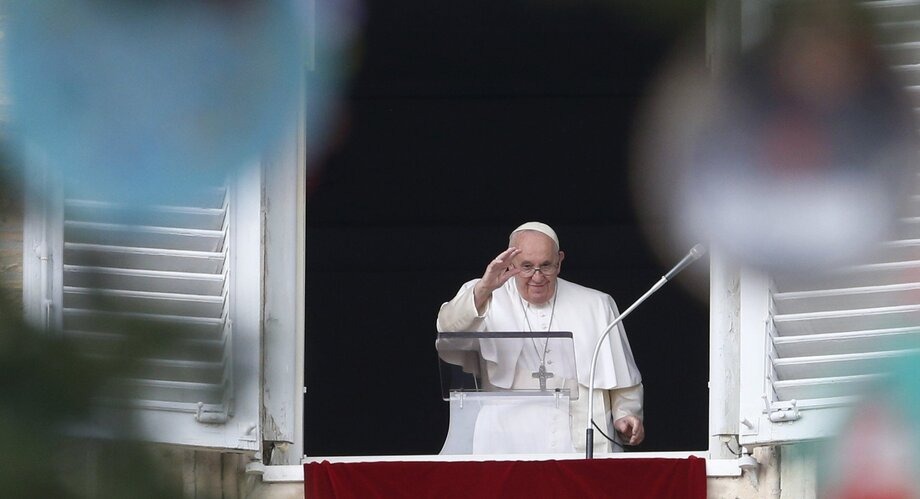In today's reading, says the Pope, we see John the Baptist in prison who sends his disciples to ask Christ if he is the awaited Messiah. Jesus breaks with John's image of "the one who is to come". He is not a severe man who punishes sinners. "Jesus has words and gestures of compassion for all. At the heart of his action is forgiving mercy, by which the blind see and the lame walk. The lepers are cleansed and the deaf hear. The dead are raised and the poor have the Good News preached to them".
We can learn from the crisis that John is experiencing, Francis tells us. "The text underlines that John is in prison and this, besides the physical place, makes us think of the interior situation he is living. In prison there is darkness. The possibility of seeing clearly and seeing beyond is missing. In fact, the Baptist is no longer able to recognize in Jesus the expected Messiah".
John's interior crisis teaches us that even "the greatest believer goes through the tunnel of doubt. These doubts are not always an evil, the Holy Father points out. "What is more, sometimes it is essential for spiritual growth. It helps us to understand that God is always greater than we imagine. The works he performs are surprising with respect to our calculations. His action is always different. He exceeds our needs and our expectations. For this reason, we must never stop seeking him and converting ourselves to his true face".
It is necessary to rediscover God in stages, says the Pope, paraphrasing a theologian. "This is what the Baptist does. Faced with doubt, he seeks him once more. He questions Him, he discusses with Him and, finally, he discovers Him". John "teaches us not to enclose God in our schemes, because there is always the danger and the temptation to make a God to our measure, a God to be used.
"We too, at times, can find ourselves in John's situation, in an interior prison, incapable of recognizing the newness of the Lord, whom perhaps we hold prisoner in the presumption that we already know so much about him". The Holy Father tells us that "we never know everything about God, never. Perhaps we have in our heads a powerful God who does what he wants, instead of the humble and meek God, the God of mercy and love, who always intervenes with respect for our freedom and our choices. Perhaps it urges us too to say to him: are you really, so humble, the God who comes to save us?"
These prejudices that we have towards God we also apply to our brothers and sisters. The Pope warns of the danger of putting "rigid labels" on those who are different from us. To help us grow and overcome these obstacles, the Church gives us the gift of this liturgical season, as Francis says. "Advent is a time of reversal of perspectives, where we allow ourselves to be surprised by the greatness of God's mercy."
The Pope concluded with a brief allusion to Holy Mary: "May Our Lady take us by the hand, as our Mother, and help us to recognize in the littleness of the Child the greatness of the God who is coming".








